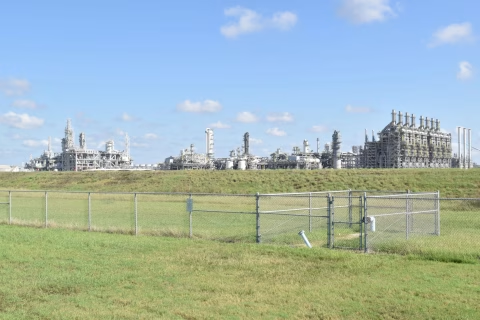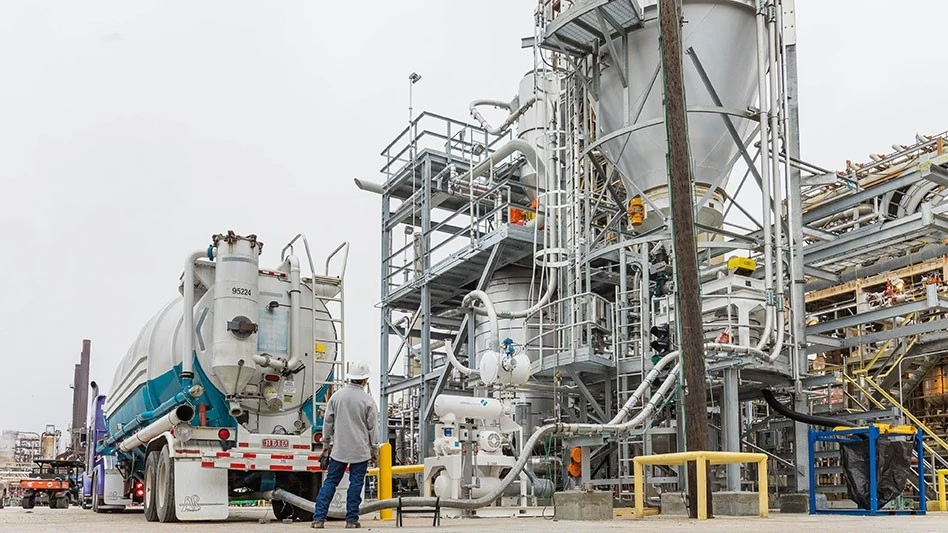ExxonMobil has abruptly paused its ambitious US$10 billion plastics plant project on the Texas Gulf Coast. The decision comes just months before construction was set to begin in Calhoun County.
The project, known as the Coastal Plain Venture, aimed to produce up to 3 million tons of polyethylene pellets annually. Those pellets would primarily have been exported to Asia.
ExxonMobil cited “current market conditions” as the reason for slowing development. Yet the company emphasized it remains confident in its long-term growth strategy.
Project Factsheet: Coastal Plain Venture Plastics Plant
Proposed Investor / Owner: ExxonMobil
Project Name: Coastal Plain Venture
Estimated CapEx: ~$10 billion
Product: Polyethylene pellets, ~3 million tons annually
Location: Calhoun County, Texas Gulf Coast
Status: Development paused / slowed
Original Start Date (Planned): Construction expected to begin soon
Export Focus: Primarily Asia markets
A major legal setback occurred just six weeks before this pause: a judge struck down a school district’s prior approval of a tax incentive package for Exxon. The court found the Calhoun County Independent School District failed to properly notify the public.
Because of that ruling, the proposed 50% property tax reduction over ten years, scheduled to start in 2031, was thrown into uncertainty.
Despite the pause, Exxon says it may revisit the project when market conditions improve. The company is maintaining relationships with local officials, contractors, and community stakeholders to keep future options open.

Strategic & Market Considerations
The Coastal Plain Venture was part of Exxon’s broader plan to scale advanced materials production in the U.S. By localizing pellet production, the project would have reduced reliance on foreign feedstocks and refined imports.
However, the global plastics market faces volatility, evolving regulatory pressure, and changing demand trends, especially for polymers used in export markets. Those dynamics likely influenced Exxon’s decision.
Furthermore, legal and political risk around incentive agreements proved material. The recent court decision disrupted the tax structure that bolstered the project’s financial modeling.
Risks, Implications & Next Steps
Slowing or delaying the project raises concerns around sunk costs, contractor readiness, and community planning. Supply chain and labor contracts may face renegotiation or reallocation.
Still, Exxon’s statement suggests this is not a cancellation, but a tactical slowdown. The company will monitor market metrics and may revive momentum later.
In the coming months, Exxon and local officials will likely reassess permitting, incentive structures, and financial models. Only when favorable conditions return might the “go” decision be reinstated, a cautious approach seen in other large-scale ventures such as the $30 billion Mozambique LNG project, where security assurances and regional stability remain central to project viability.
Such deliberations highlight the broader challenges facing multinational energy developers operating in emerging markets. Political volatility, infrastructure gaps, and fluctuating global demand can significantly alter investment timelines. However, if Mozambique and similar nations can balance these risks with robust security and policy reforms, they stand to attract record-breaking foreign direct investment and solidify their positions in the global energy transition.
This pause also serves as a cautionary tale: even mega-scale industrial projects with strong corporate backers are vulnerable to market fluctuations, regulatory shifts, and legal challenges.

Leave a Reply